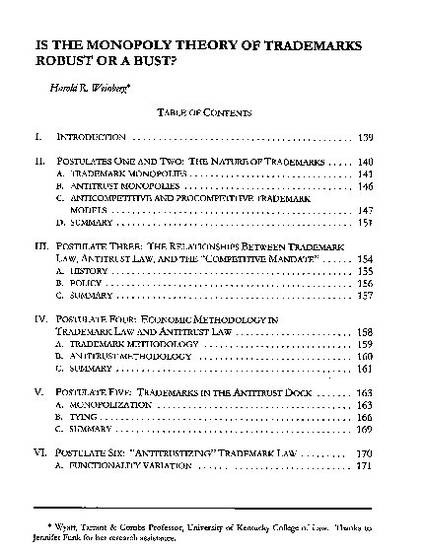
The "monopoly theory of trademarks" would "antitrustize" trademark law by incorporating antitrust legal precedent, economics, policies, reasoning, and terminology. The theory is comprised of six interrelated postulates contained in trademark law and scholarship. The postulates are (1) trademarks are monopolies; (2) trademark monopolies are like illegal antitrust monopolies because both harm competition; (3) trademark law is like antitrust law because both value competition; (4) trademark law is like antitrust law because both apply economic methodology to product markets; (5) an antitrust lens can help one understand trademarks and trademark law; and (6) an antitrust lens can help one decide whether a trademark is functional, generic, or infringed. The sixth postulate "antitrustizes" important recurring trademark issues. It is advanced by numerous legal scholars, and has gained traction in the courts.
This Article examines each of the postulates to determine whether the monopoly theory of trademarks is robust, consistent with what we know about trademarks and their effects in product markets, and capable of enhancing our understanding of what currently is uncertain or unknown; or whether it is a bust, failing to meet these criteria. Parts II through VI of the Article evaluate the postulates. Part VII concludes that the monopoly theory is a bust.

Journal of Intellectual Property Law, Vol. 13, No. 1 (2005), pp. 137-178